 THE LOVE HATERS |
|

A Dirty Business Mystery #3 Read Kindle PreviewWhen Paula Holliday learns that one of her new friends is actually a fugitive who’s been on the run for years, she’s hired to find the person who outed the woman and in doing so finds that a lot of people are not always who they seem to be. The third entry in the suburban noir series which Carolyn Hart called “quirky, original and captivating” and the Connecticut Post called “a sophisticated mix of comedy, romance and murder.” Excerpt “It’s a false lamium,” I said. Babe Chinnery folded her muscular arms, appraised the plant, and said simply, “If it’s not a lamium, why in hell do you keep calling it one?” “Things aren’t always what they seem to be.” “Thank you, Yoda.” The woman had a good point. She usually did. Despite the rock ’n’ roll outts, the hair color that changed with the New England seasons, and the boyfriend twenty years her junior, Babe had more common sense than most of the people I knew. It was a perfectly legitimate question and I couldn’t answer her. “Don’t give me a hard time. I’m just a gardener, not Linnaeus.” “Who’s Lin- ay-us?” “Some Swedish guy who named plants,” I said. “Don’t worry—there won’t be a quiz. I was just trying to dazzle you with my smarts.” “Consider me dazzled.” In fact, Linnaeus hadn’t named this plant. There was a lot of deception in the garden. Beautiful plants that were poisonous to the touch. Things that look like one thing but were something else—false spirea, false hellebore, false Solomon’s seal. I suppose it’s accurate to label them false, but why not just call them what they are? When I’m queen, I’ll change that and give them all their own lyrical, poetic names, like Kalmia latifolia or Platycodon grandiorus or a new favorite, nicotiana ‘Only the Lonely’. Roy Orbison would be so pleased. “Trust me, you don’t want real lamium in these planters. You said you want more yellow. This may not look like much now, but when this baby owers, believe me, it’ll be yellow.” Babe squinted and walked around the parking lot. She held a nursery catalog near each planter to visualize what it would look like next year when it was in full bloom. I resisted the urge to tell her the images in the booklet were almost as unrealistic and unattainable as the ones in the Victoria’s Secret catalog. Why burst her bubble? Optimism was a critical ingredient in any garden. Babe had specically requested yellow because that color would work with the diner’s new hot-pink shutters. Not exactly ye olde New England color scheme found in regional magazines, which always wanted to call red, Betsy Ross red, and blue, Heritage blue, as if the building’s occupants all wore knee breeches and white hose and were called Lemuel or Goody. But Babe was not your garden-variety New Englander and the colors worked for her—a little punk rocker, a little Caribbe an beachcomber—to go with the lakeside setting and the tiki-bar feel of the place. “Damn,” she said. What now? She stood at the far side of her outdoor café, looking perturbed. Behind the lattice and the aking hand-painted homemade donuts sign stood the small utility shed where Babe stored her trash cans and where a Dumpster was temporarily parked. The top and side doors of the shed were open, and the industrial-sized cans beside it had been knocked over. “They can’t be bargained with. They can’t be reasoned with. They don’t feel pity or remorse or fear. And they absolutely will not stop.” Where had I heard that? “Raccoons.” She smacked the side of the shed in frustration. “How can they have lifted those rocks off the top?” “Beats me. The rock trick works at my place. You want me to help clean up?” “Nah. I shouldn’t do it now, either. I’m needed back in the kitchen. I’ll take care of it tonight. Just chaps my butt, though. Look at this— papers and food scraps strewn all over.” She hauled off and kicked one of the rocks that had held down the top of the shed, and it bounced off one of six metal cans lined up in formation behind the shed. “What are you saving the empties for?” I asked. “Deposit?” “They’re not empty. It’s WVO—waste vegetable oil. I leave it out for the people with the fat wagons.” I’d read about the fat wagons, or French frymobiles. Serious environmentalists or loonies, depending on which side of the gas pump you stood, recongured engines to run on waste vegetable oil; and, apart from making their cars smell like a death wish–sized tub of onion rings, it sounded like a good idea. Maybe it was a diet strategy, too. Perhaps if you smelled fried food all day long, you were less likely to eat it. “You think it was one of those guys?” “Looking for what? I leave all the good stuff out. There’s no need to go through the trash. And most of them aren’t poor. One guy has a Mercedes fat wagon. He just hates paying for gas. For some it’s the carbon footprint; for others it’s the dependency-on-foreign-oil issue. I think the Mercedes guy just wants to relive his radical youth. It kills him that he’s turned into his dad. I’m happy. They recycle my garbage. And it makes me feel less guilty for not having traded in my SUV for a Prius, like I told my sons I would. “No,” she said, rubbing the hand that was still smarting from the ill-advised smack. “These were four-legged culprits with glow-in-the-dark eyes and pointy little noses. I’d think they were cute if I saw them on the Nature Channel, but not in my parking lot!” I empathized; I felt the same way about deer. In a national park, Bambi. In my garden, Godzilla. In the years since we’d become friends Babe and I had transformed the glass- and rubbish-strewn parking lot outside the Paradise Diner into a tropical oasis. Never mind that this part of Connecticut frequently saw ten to fteen snowstorms a season. Babe chose to live on island time. She had made her own rules and blissfully ignored convention for so long that people in Spring eld rarely commented on it anymore, unless it was to acknowledge her latest makeover—her current look featured spiky blond hair and ngernails the color of Granny Smith apples. We walked back to the planters. She circled one anemic lamium, moved it slightly to the right, and gave it careful consideration before giving it a thumbs-up. The plant had made the cut. We reenacted the same pas de deux with each perennial and shrub every planting season, and she’d never yet turned down one of my suggestions. “Why do you do this,” I asked, “when you always say yes?” I made a note to order six more false lamiums from the nursery. “I just don’t want you to think I’m a pushover.” As if that were likely. I’m Paula Holliday, sole proprietor of Dirty Business, formerly known as PH Factor, but the longer I did it the more dirt I dug up, so I changed the name and it caught on. It was also my intentionally vague way of saying that I’m not a licensed landscape architect and I’ll do pretty much anything garden related from long-range design plans to houseplant care. The traditional property maintenance business had all but disappeared these days. People were cutting back, and I’d had two clients stiff me for an entire summer’s work last year by moving out and neglecting to leave a forwarding address so that I could send them a nal bill. Anna Jurado, my part-time bookkeeper, felt responsible, but it was my own fault. I should have read the telltale signs— the tag sale, the rented Dumpster, the “Oh, no, we’re just doing some fall cleaning.” Right, and I’m just doing this because I’m a madcap heiress waiting for my inheritance to come through. The good news was that those two miscreants inspired my latest professional brainstorm—the quickie curb-appeal face- lift. Makeup for your home. With all the for sale signs dotting the area, these instant-gratication jobs had turned into the most lucrative and least-labor- intensive part of my business. I suppose I had cable television to thank. For three to ve hundred bucks, depending on the size and selling price of the house, I’d sweep in with a horticultural Band-Aid for a plain house—containers, annuals, and a few small trees. Pumpkins and ornamental kale in the fall. Just about the only thing I couldn’t orchestrate was a thin wisp of smoke emanating from the chimney to give it that nal Norman Rockwell touch. If you lived here you’d be happy, warm. Your house would be lled with the smell of homemade bread or apple pie. Your kids wouldn’t smoke pot or give you a hard time. And all your in- laws would be people you’d actually hang out with if you had a choice. All courtesy of a few plants, a vivid imagination, and a fondness for Norman Rockwell. At the Paradise, on the other hand, that wasn’t required. Not that Babe had anything against Norman Rockwell, but she saw my work at the diner as a calling card—not unlike the display gardens at a ower show. Babe had insisted I put Designed by Dirty Business signs on the planters as a way to drum up business. It had worked for the past three seasons, and I had my ngers crossed for next year. I allowed myself to think about a vacation. I hadn’t had one since leaving my old job, but once my assets and debits were on speaking terms I was heading to Jost Van Dyke. I’d lie in a hammock and read the water-swollen paperbacks—thoughtfully left by previous travelers— that smelled of the sea and suntan lotion. And the biggest decision I’d have to make was which high-calorie local drink to order, the painkiller or the bushwhacker. In the meantime the Paradise Diner would serve as my Caribbean surrogate. Earlier in the season, Hugo Jurado and I had turned one corner of Babe’s parking lot into an outdoor café, something sorely missing in suburban Springeld. Hugo was Anna’s husband and my part-time helper; sometimes it seemed as if they were the brains of the business and I worked for them instead of the other way around. Springeld’s downtown had evolved, even in just the few years since I’d arrived. We had an art house movie theater and an all-night deli, but further out of town Babe’s and the Dunkin’ Donuts were the only two gastronomic and social destinations. Double D had the edge on the coffee, but no one could touch the donuts at the Paradise. Hugo and I had constructed wooden ower boxes two feet high and four feet deep creating a modular enclosure for a twenty-by-twenty-foot area in the front of the diner. In the spring and summer the boxes dripped with colorful annuals and perennials, and Babe wanted to extend the season with a fall display that included shrubs and ornamental grasses. All of them were a charming counterpoint to Babe’s deliciously trashy message marquee and neon sign, where one of the bulbs was always burned out or smashed. I half suspected that kids came by at night when the diner was closed and tossed rocks at the lightbulbs, to help Babe maintain the diner’s slightly seedy look, or maybe it was Babe herself, who knew? She had added picnic tables and unmatched tag-sale umbrellas, so now in addition to being a must stop for every trucker in this part of the state, the shabby chic café was attracting the Main Street Moms who had previously been too timid or too snobby to venture in, preferring the overpriced gourmet bakery three towns away. One or two curmudgeonly regulars had grumbled that Babe was tarting up the place, but just as many appreciated the new and better-looking faces. The early shift of day laborers and long haulers who camped out at Babe’s—whether they were hungry or not—was now followed by clusters of suburban matrons, sometimes with their kids, fresh from soccer or ballet or dressage. Sometimes they overlapped. “When you pay my bills,” she told the complainers, “you can tell me how to decorate and who to serve.” I didn’t pay her bills either, and she rarely paid mine, except for materials. For the most part, Babe and I had an in-kind arrangement. I worked on her outside space and she let me use a corner booth at the Paradise as an informal ofce where the coffee kept owing and Pete number two (so named to distinguish him from Babe’s late husband) used me as a guinea pig for new recipes. It was an arrangement that suited me ne despite the three or four pounds I’d put on since I had relocated to Springeld from New York City and our unspoken agreement had started. And Babe’s bulletin board was my private ad space, touting my services to residents and small businesses up and down the Merritt Parkway, which brought Babe many of her non-truck-driving customers. This was a far cry from Babe’s previous life twenty or so years earlier when she was a backup singer traveling with a band and the dear departed Pete number one. Late in the day when there were no kids around, she would let slip one of her more outrageous anecdotes, and she never failed to gather a crowd at the diner’s counter, leaving most of her listeners feeling Walter Mittyish for living vicariously through her adventures instead of getting off their butts and having some of their own. Once in a while a story sounded suspiciously like something I’d seen in a movie or read in a novel, but if she was embellishing, who cared? Who didn’t relive the past and burnish some stories to make herself seem smarter, hipper, and funnier? And she told the stories well, with enough brio and detail to make you feel as if you’d been there with her, partying with rock stars and dancing on yachts. “I miss it sometimes,” she’d said, “traveling with the Jimmy Collins Band. A different city every week. Hell, sometimes every night. That was a lifetime ago. I have no complaints. Somebody once told me there are only two stories: a man goes on a journey, and a stranger comes to town. The rst half of my life, I went on the journey. Now I’m here and the people who come to the diner are the ones who come to town.” A bittersweet smile had crossed her face when she said it, and I wondered if she was thinking about Pete number one and how they had come to this town so many years ago. Babe brushed her hands on her tight black jeans, held the diner’s screen door open, and shooed me inside. “C’mon, Linnaeus,” she said. Babe was a quick study. “Town” was Springeld, Connecticut, somewhere between Boston and New York and light-years from both. I had come to Spring eld from New York City years earlier as a summer renter, thinking everything was so much smaller and simpler than my life in New York. People said hello. After only two trips to the diner I was asked if I was having “the usual.” Arrogantly, I found everything quaint. Then a few years back I lost my job and my boyfriend in one sixty-day period. I came here to lick my wounds and I never left. Small and simple was just what I needed. “Speaking of a man going on a journey, have you heard from Neil?” I asked casually, sliding onto a counter stool and positioning my backpack on the one next to it. I peeled off my garden gloves, shoved them into a back pocket, and checked out the day’s specials on the blackboard. I made an extra effort to appear to be studying the menu in case the subject of her relationship with Neil was off-limits. Babe’s face softened. Neil was her sweet young thing. He had gone home to Scotland because his mother was ill and wound up staying longer than any of them had expected. “He’s supposed to be back in two weeks, according to the last round of electronic missives.” Neil had been e-mailing and Twittering lists of movies, foods, and recreational activities he expected to indulge in once he got home. They were sweet, like two teenagers separated during summer vacation. Babe smacked her lips as if Neil were one of Pete number two’s architectural, Food Network desserts. “His mom is out of the woods medically, but it sounds like she didn’t change a lightbulb or hang a picture in the seven years he’s been in this country. You’d think no one else in Scotland knew how to use a spanner. That’s a wrench . . . or a hammer. I forget which.” “C’mon, isn’t it just the mom thing? Don’t you have it have with your kids?” “My kids? They’ve been independent from a very early age.” That’s right. I recalled one of Babe’s late-night storytelling sessions. She told us how one night her sons, Dylan and Daltry, had borrowed a friend’s car to catch Hootie & the Blowsh at a club called Emerald City, more than a hundred miles away. They almost made it, when a couple of bored staties pulled them over on the Jersey Turnpike for driving with a broken taillight. Her sons were eleven and thirteen at the time and the only thing that bothered Babe was that they’d done it all to see Hootie and not some edgier, hipper band. Independent was an understatement. So independent that I’d never met them and neither had anyone at the diner. They hadn’t been back east since their father had died. That was a subject I didn’t touch. People were funny when it came to their kids. I placed my order—red, white, and blueberry wafes, probably the reason for my extra four pounds—and went to wash my hands. When I got back, Babe was peering out the window through the miniblinds. “What have we here?” she said under her breath. “If it’s Tuesday it must be . . . what, horseback riding or lacrosse? Convoy of Main Street Moms arriving, Pete. Crank up the cappuccino machine.” Which was a joke, since she didn’t own a cappuccino machine, although Pete was lobbying hard for one, as well as a copper milk steamer he’d seen on QVC. I half stood in my seat to see what was holding her attention for so long. A otilla of sleek cars had arrived and pulled into the angled parking spots adjacent to the entrance as if they were a team of synchronized swimmers or trained seals. Just as gracefully, out the drivers came, rst one smooth fair head, then the next. All the moms wore slightly different permutations of the same early fall outt—turtlenecks, leather vests, quilted jackets, quilted vests, leather jackets, with well-coordinated gloves, scarves, and bags that were like the colors on creamy decorator paint chips. Pricey paint. Four or ve kids who could have belonged to any of the women piled out of the back of the largest SUV. Towheaded angels, a cross between the psycho kids from Village of the Damned and those from the latest Ralph Lauren ad campaign whose little duds probably cost more than my rst car, although that wasn’t saying much. Something about the mothers suggested they had just parked Thoroughbred horses, like their cars, on similar angles, and left them in the nearby Mossdale Stables. Caroline Sturgis was the last to dismount from a silver, or maybe it was a Paul Revere pewter Land Rover. Caroline was one of my rst customers in Springeld. We’d met at a local thrift shop—I was buying, she was donating. Despite the differences in our ages and socioeconomic groups, she seemed to gravitate toward me. As a newcomer with a business, I needed all the contacts I could get, so I responded. This would be the third year I’d looked after Caroline’s property, weaning her from the pedestrian triumvirate of impatiens, marigold, and red salvia and steering her toward more adventurous plantings, or at least my notion of them. But I’d kept my distance for the last month or so because making a house call inevitably involved a pitcher of something alcoholic. I’d succumbed in the past and it resulted in my losing a day’s work and once, a dozen ats of pansies that had sat wilting in the sun for hours while Caroline and I got very happy on a bottle of Mouton Rothschild. Getting loaded early in the day was something a rich suburban matron might be able to do, but it was a no-no for a woman of modest means who was struggling to keep her small business a oat. It was just cool enough to turn up your collar without looking too affected, so Caroline and the Moms settled in at a table outside—one farthest from the road, mostly out of the sun, and at an appropriate distance from another table of women whom they acknowledged but didn’t join. Their kids commandeered a picnic table nearby. These were the well-heeled ladies of Springeld and its neighboring towns. They traveled in packs to book groups and charity events, prep school fund-raisers and the occasional local art show or dramatic per-for mance. They were attractive, polite, and just standof sh enough to make you feel justi ed in not feeling all warm and fuzzy toward them. If there was a Junior League in Connecticut I wasn’t aware of it, but I imagined that the Main Street Moms—as Babe had christened them— were the unofcial New England equivalent. I had a love-hate relationship with them. Two or three more on my client list and I could stop worrying about the rising cost of mulch and start packing for the Virgin Islands, but with a last shred of inde pendence, self-respect, or city slicker stupidity—I didn’t know which— I couldn’t bring myself to suck up to them the way any other small businesswoman would have. Babe motioned for one of her young waitresses to go outside and take their orders. “Why me?” the girl said, her expression changing from sullen to stricken. “They always look at me as if I have two heads.” She didn’t. She had one head, but she did have more than the requisite seven holes in it. Thank goodness my generation was satised with a few extra holes in our earlobes. “Hey, Terry, you don’t wanna be looked at, lose the nose ring and the eyebrow bolts. Otherwise wear your freak ag proudly,” Babe said, sympathetic but rm. She swished a handful of menus under the girl’s pierced nose. “Great. Now I’m going to have to google freak ag. I don’t know what that means, but I’m going,” the girl said, shaking her head. She snatched the menus and let the screen door slam as she went out, but her chin was the tiniest bit higher than it been earlier, getting the spirit of the advice if not the actual reference. “Good girl!” Babe said. “What does that mean?” I asked quietly. “Et tu, Paula? You girls are sadly lacking in a basic cultural education,” Babe said. “I told them to write down everything they heard in the diner that they didn’t understand and then look it up. Freak ag? Woodstock? The Dead? Frank Zappa? Crosby, Stills and Nash? What are you girls going to listen to when you get old, sitting in that rocking chair on the nursing home porch? The Spice Girls? Salt-N-Pepa?” Outside, shielding her eyes, Caroline Sturgis twisted in her seat and peered through the miniblinds until she located me at the counter. She wiggled her ngers in my direction, said something to her friends, then excused herself and headed for the front door. I knew I should have parked the Jeep farther in the rear, she might not have known I was there. “Hello, partner,” she sang, accompanied by the screen door’s bells. She walked in my direction with just the hint of a cowboy swagger. “That’s premature,” I said. “I haven’t agreed to anything.” For months Caroline had been pursuing me. She wanted us to start a business together, but I wasn’t sold on the idea. I worried there would be lots of celebrating and not a lot of working. She might be able to write off a failed business as this year’s uncompleted pet project, like a quilt or an exercise program, but I couldn’t. Besides, I didn’t like partners and hadn’t had one for a while. Professional or otherwise. Having been thrown recently, I was nding it hard to get back on the horse. “You’ve been avoiding me,” Caroline said, wagging a nger at me. “I know it.” Of course she knew it. I was the worst liar on the planet. That’s how my mother always knew when I stayed out too late or sneaked beers and cigarettes with my girlfriends and then tried to mask the smell with Altoids. That’s why I’d had a string of two- date relationships. What’s the point? If it’s not happening, it’s not happening. And that was why it was a good thing I was no longer in the television business, where lying was practically a job requirement. “This is not just a bored housewife’s fantasy,” Caroline said. She’d read my mind. “I’ve written a business plan. I have spreadsheets and everything, and I’m going to sit here until you agree to meet with me to discuss it.” That last line was delivered with all the certainty of a three-year-old who announces that he’s going to hold his breath until you do something, knowing full well that you’re not going to let him turn himself blue, even if he could. Caroline had unwittingly just listed everything I hated. I came to Springeld to get away from spreadsheets and business plans. I was hardly going to be lured back into harness by a pie chart. And I’d gotten used to being the boss. Okay, my full-time staff was sitting on this counter stool, but at least I didn’t think my boss was an idiot, as most people do. Still, I liked Caroline. What started as a business relationship had developed into something more—a friendship not based on history and “remember when.” And it wasn’t as if I had any burning plans for the next few months other than keeping this counter seat warm and keeping Babe company. I’d briey considered an off-season job but didn’t really see myself plowing people’s driveways, which was what most of the other gardeners did during winter. Maybe it wouldn’t be so bad getting toasted before noon during those long, cold months between November and February when business was slow or, let’s face it, nonexistent. Caroline drank the good stuff, too, no screw-top bottles for her. I could resurrect my fondness for Veuve Clicquot and premium vodka on her dime, instead of indulging in the Two Buck Chuck I’d been sipping and pretending to like on those chilly evenings alone by the re. I was driving into the city the next day, picking up my pal Lucy, and heading to Bucks County for an old colleague’s wedding. Now that nuptials lasted ve days and required interstate, if not intercontinental, travel I wasn’t likely to be back in Connecticut for almost a week, especially if I tacked on a few days visit with Lucy. “When were you thinking of getting together?” I asked, taking out my phone and scrolling through the calendar. “I knew it! I knew you’d say yes!” Caroline said. “We’re going to buy Chiaramonte’s!” “I haven’t said yes. I agree to talk about it when I get back and perhaps advise you, that’s all.” Caroline nodded, not hearing me. Why are blond women always so sure we’re going to do what they want? And why do we do it? I was sure it had something to do with the vestigial scars from high school. We’re still hoping the cool kids will want to have lunch with us. How pathetic is that? She pulled out an old-style planner, blood-red leather, with her initials stamped in gold on the front. All the pages still had hard edges, and there were no stray papers or business cards sticking out. Brand-new for her brand-new venture. It was endearing. She ipped through a few pages with a fat ceramic pen. “I can’t do next week, either—college visits. Jason’s only fourteen, but that’s when you have to start looking. He’s had a wish list since he was nine. How about the following week? I told Sarah I’d go with her to the doctor’s, but I don’t know which day yet. She’ll need my support,” she said, almost to herself. “She’s getting Brandon’s DNA results back to see which sports he’ll be good at.” I wracked my brain trying to think which of the little blond urchins was Brandon. “Isn’t he just a toddler?” “That’s when you’re supposed to do it, or else Sarah might waste a lot of time taking him to the wrong classes.” That’s right, heaven forbid Brandon spends time at an activity for which he is not genetically predisposed. “How about meeting on the twelfth, nine a.m. at my place unless I let you know otherwise? Does that work for you?” Caroline asked. “I’ll come straight home from my morning ride.” It did indeed. In the fall, almost everything worked for me, especially when someone asked that far in advance. It was the time of year when I remembered the concept of weekends, too. And exercise that involved colorful weights instead of forty-pound bags of topsoil or manure. In any event, our scheduled appointment gave me enough time to gure out how to let Caroline down gently when I eventually said no. It was a hundred to one I’d actually want to go in to business with her, but why blow her off completely; no point in totally burning bridges or alienating my biggest customer. Mission accomplished, Caroline left to rejoin her pals outside, chirping to Babe on her way out to think of a good name for our new gardening venture. Babe and I answered at the same time, “What’s wrong with Dirty Business?” Caroline laughed like a teenager. “Dirty Business— that is a good name, better than Chiaramonte’s. Done!” She snaked through a knot of recent arrivals and tried unsuccessfully to ignore the comments of a handful of truckers waiting to be seated. She smiled but sidestepped them, backing up against the Snapple fridge, as if coming too close would somehow contaminate her or rough up the nap of her tan suede jacket. It was all very faux friendly. In the group was one long-haired, bearded guy, not bad looking if you liked that slightly grungy Johnny-Damon-when-he-was- a-Red-Sox look. He wore Oakley sunglasses, a dark green windbreaker, and a baseball cap with an ornate letter D on the crown. He took off the glasses to get a better look at Caroline or perhaps to give her a better look at him—I couldn’t tell which. Neither Babe nor I heard the exchange, but from Caroline’s reaction something he said shook her up. She rushed out the door, and Babe shrugged as if to say, “what the hell?” Caroline must have made some excuse to her friends because without even touching her coffee she left a few dollars on the table and hurried to her car. “Johnny Damon” walked to the door and put his hand on the handle as if he was going to go after her. “What did I tell you boys about scaring the locals?” Babe said it loudly enough to stop him in his tracks. He turned around and smiled. “Do you know what the markup is on coffee and a fat-free muf n versus the lumberjack specials and endless cups of coffee you animals are gonna suck down?” Babe might not have looked like much of a businesswoman, but she knew where every penny went and where it had come from. Anna and I could take a page from her book. “I didn’t mean nothing, honest,” he said, walking back to the counter. “I just said she looked familiar. You look familiar, too, pretty lady,” he said. “Can I buy you a coffee?” “That’s highly original. Are you, by any chance recently divorced? Because I don’t think I’ve heard that one since leg warmers were in style. Next time, you could try asking what her sign is. I hear that one’s making a comeback, too.” She was busting his chops but in a gentle, irty way, smiling and leaning over the counter. Few people left Babe’s without wanting to be either her friend or her lover. This one was a toss-up. One of his pals chimed in. “Give him a break, Babe. It’s his rst time here. JW don’t know the rules.” What were the rules, anyway? Were they posted somewhere? Did I know them? The man looked sheepish and said nothing, rejoining his friends. His buddies laughed; then they all piled into a booth closest to the front door before the table was even bussed. One of Babe’s singing waitresses went to clean it up and take their orders. “Not bad,” Babe whispered, advance scouting for me as usual. I ignored her. One of my rules is not to think of someone as a potential mate or date until I’ve at least said a complete sentence to him and gotten a semi-intelligent answer. “I’ve thrown back better. How’s the new help working out?” I asked, changing the subject. The help was three girls who had stumbled in, in tears, after a singing gig that hadn’t gone well. Of course Babe had hired them on the spot and promised to help them with their act. Now they worshipped her and copied her every move. “That’s a very slick segue. They’re not so new anymore. But they’re doing okay, thanks for asking. They’ve got more physical presence on-stage,” she said, holding the ketchup bottle like a mike and pretending to sing into it. “They’ll be at Ringwald’s in a coupla weeks. Alba’s singing lead.” They all looked the same to me. Alba must have been the one inside—more condence than the one with the multiple piercings. She was holding her own, sparring with a table full of burly guys; no mean feat for a ninety-pound teenager in heavy makeup and black Frankenstein shoes that looked like cinder blocks, spray painted and strapped to her heronlike legs. Her life ashed before my eyes. I saw her strutting her stuff, sucking on a ball microphone and posturing like Madonna or Mick or Avril or Amy, getting deliriously famous and then crashing and burning before she was twenty-one, rehab by twenty-two—video at eleven. Perhaps I took too dim a view of the music business. The girl outside, with the eyebrow bolt, was more introspective. Probably the songwriter, writing a lot of angry chick, why-did-you-dump-me songs. Jeez, I was turning into a cranky broad. Was I really jealous of a couple of young girls? “You should go,” Babe said, as if she were clairvoyant. “Lots of guys at Ringwald’s.” “Twenty- year- olds.” “Nothing wrong with young stuff for whatever ails you.” That was as aggressive as Babe got in her matchmaking efforts. A few times a week she remembered that I hadn’t had a date in a while and gave it a shot, but she never pressed. Sometimes it seemed as if she and Lucy Cavanaugh, my friend the bridesmaid, were having a private contest to see who could hook me up rst. Despite Lucy’s vehement denials, I knew there’d be a x-up sometime over the course of the upcoming ve-day wedding. That was the real reason she’d asked me to drive her. And while I wasn’t actively dreading it, I wasn’t looking forward to it either. “I’m going to a wedding. There will be ample opportunity for me to listen to some boring guy’s whole life story before telling him I’m not interested. Besides, as you say, plenty of cute guys right here. No need for me to pay a cover charge for some watered-down drinks at some shabby joint downtown. I can just stay in this shabby joint and watch the passing parade.” “Shabby? I’m cutting you off. Pete, no more taste testing for Paula,” she yelled. Moments later, Eyebrow Girl pushed through the door, butt rst, muttering, with two trays of cups and small plates, one of them precariously balanced on her forearm. Something on her sleeve, or maybe her studded leather cuff, snagged on the door handle and one of the trays ew out of her hands like an oversized Frisbee. The other one fell with a clatter, splashing beverages up in the air like minigeysers. “Holy shit!” she said, laughing and only half covering her mouth, in deference to the father sitting at the counter, who gave her a disapproving look and covered his toddler’s ears as if the kid could recognize a naughty word at that tender age. No one was hurt and just a few were splattered by the mug puddles; someone applauded. I’ve never quite understood that. Is that supposed to make the person feel better? Yes, I am a klutz and a loser, thank you for acknowledging. I feel so much better. The bearded trucker who’d spoken to Caroline was closest to the door, and he got up to help the girl who was crab walking in a circle collecting the items she’d dropped. He said something to her, and it was the rst time I’d ever seen the kid crack a smile, although she went to some pains to hide it. Babe came around from behind the counter and picked up the cups and plates that had traveled farthest. “All right, Mr. Nice Guy, you’ve redeemed yourself for your formerly boorish behavior. Go eat your food before it gets cold. I’ll get this.” “Don’t worry, Terry, it’s no big deal,” she whispered, bending down to help the girl. “Doesn’t really count unless you send one of them to the emergency room.” She handed the girl a soggy ve-dollar bill. “Take your tip and go wash your hands.” Babe brought the mess back to the counter near where I was sitting with my coffee and waiting for my order. “Look at this. Pete makes these phenomenal, food orgasm muf ns and the Moms barely touch them. They don’t need utensils, they need scalpels.” The cranberries had been picked off and a thin layer of crust was almost surgically shaved off the tops. I remembered that calorie reduction tip well. “You used to be like that,” she said. “A damn picky eater. Before you got some sense.” Sense. To Babe that meant ordering the wafes. Or the cake or the sundae or whatever it was you really wanted. Whether it was food, men, or adventures, Babe did not believe in living a life of denial. “These women,” she said, motioning to the group outside. “I still don’t get some of them.” She cleared off the tray and put the cups and dishes in a rubber basin underneath the counter. “So what is it the queen of the cul-de-sacs wants you to do now? Plant marigolds in the shape of clinking martini glasses?” Babe was referring to my rst fall in Springeld when Caroline had asked for tulips planted in the shape of giant crossed tennis rackets. Which worked out well until, inevitably, they opped over and resembled nothing more than an enormous handlebar mustache. “That’s very creative,” I said. “I may offer that next year. I could do martini glasses. Champagne utes should go over well during bridal season.” I was semiserious. “You remember last spring when Caroline was calling me three times a day,” I said, “and practically stalking me here at the diner?” Babe nodded. “She’s got some notion to buy Guido Chiaramonte’s old nursery. And she’s written a business plan, which I have foolishly agreed to take a look at. She’d have a garden gift shop and I’d offer design services. We’d col laborate on special projects.” “Sounds good. What’s wrong with that?” “They want two million dollars for the property, and it probably needs another ve hundred thousand just to open the doors. She wants to front the money and put it all in my name.” That raised an eyebrow. She looked around as if to appraise her own lot with its charming waterfront view. What was her lakeside property worth? One million? More? “Okay. Unusual but, I repeat, what’s wrong with that?” I couldn’t put my nger on it, but in my gut there was something about Caroline’s plan that didn’t sit right with me. It was too good to be true, like those Nigerian e-mail scams—just send me the postage, my friend, and we will split a fortune. My knee-jerk reaction was to say no. But that was generally my knee-jerk reaction to things— not unlike the overcautious lawyer who says, “We could have a problem there. . . .” There is no problem, but there could be one. That was also the reason I owned a ten-year-old car, a fteen-yearold television, and a four-year- old cell phone that the company’s Web site refers to as a “legendary” model. It took me awhile to say yes to new things. “C’mon, what’s the downside?” Babe said. “I mean, not to put too ne a point on it, but she’s loaded and you’ve got two, maybe three nickels to rub together.” And where does that expression come from? Why would anyone want to rub two nickels together? Are they supposed to make babies if you rub them together? From anyone else, I would have been offended, but Babe was close to the truth. I was fantasizing about an island trip, but I was treading water nancially. It happened every year at this time. I sucked it up, ate big breakfasts— the least expensive and most lling meal of the day and frequently free, if Pete had gotten a new cookbook or watched a new cooking program. I had soup for dinner and generally lost my three or four donut pounds by the time garden season rolled around. Not the end of the world, lots of mammals put on a layer of fat and hibernated for the winter. I nursed my third cup of coffee and picked at Pete’s all-American waf e—strawberries, blueberries, and heaps of powdered sugar— when the truckers nished and came to the counter to settle up. The bearded guy was last to pay. He lingered at the register to talk to Babe after his pals left. He motioned outside to where Caroline had been sitting. “I don’t suppose you’d like to tell me that pretty lady’s name?” “Who’s that?” Babe said. “He means Caroline,” Eyebrow Girl said, trying to be helpful. “Caroline? That was the woman I was talking to?” The young girl nodded. She didn’t understand Babe’s hesitation. Who else could he have meant? “Sure,” Babe said. “She’s Mrs. Caroline I’ve-got-a-big-dog-an-evenbigger-husband-and-a-security-system-the-Pentagon-would-be-proudof. Who wants to know?” The trucker held up his hands in mock supplication. “Wow. What are you, her bodyguard? Forget it. No biggie. I’ll catch up with Car-o-line next time.” He held up two ngers in a peace sign and backed out of the diner with a smile. Once outside, he zipped his jacket, took a last look around, and then strolled past the last of the Main Saint Moms now reloading their kids into their cars. He tipped his hat theatrically and made his way over to his truck, where his buddy was waiting for him. “I must be slipping,” Babe said, inspecting her reection in the small fridge behind the counter. “Not to be conceited, but usually they want my number. Maybe it was a mistake sucking up to the velvet headband crowd. Too much competition.” “Like you’ve ever been worried about competition. You think he was hitting on Caroline?” “Who knows? If the Paradise can bring two people together, my work is done. I’m not one to stand in the way of either true love or unbridled lust. No judgments here. I was just looking out for her. He could have been a serial killer.” I’d heard Babe say that a hundred times. As friendly as she was, the rst time she met anyone, he was a potential mass murderer until she had evidence to the contrary. Coming from a large city, I tended to agree with her. “I don’t know,” she said, “baseball hat, long hair, even the peace sign. Sometimes there’s a thin line between cool and creepy. And who wants to be responsible for giving a friend’s name and address to the next Hannibal Lecter? Am I right?” “You’re getting dangerously close to proling. What would the Maharishi say?” “He was before my time, wise guy. I’m just saying the guy looked like he should be on his way to a Grateful Dead reunion, not snif ng around a white-gloved suburban lady, who, by the way, is still happily married as far as I know. If I’m wrong and either of them is interested, it’s their business to pursue, not mine to facilitate. He may be back anyway. I think he was driving for the same company as Retro Joe.” Retro Joe was hard to miss. Despite the fact that he was over sixty years old and 100 percent gray, he sported an oiled pompadour with a big curl on his forehead that swirled like the inside of a nautilus shell or the top of a soft ice cream cone. In the summer he wore his sleeves rolled up tight on his biceps. Mercifully, it was fall and we were spared the peculiar sight of his ashen skin stretched over surprisingly cut muscles. “Joe’s here a few times a month. Works for two or three different companies depending on where he feels like driving and where the next Elvis tribute concert was being held. I’ll ask him about his new colleague the next time he’s in.” I teased her again about betraying her Woodstockian peace, love, and music roots, but Babe was right to be cautious. One town over, an elderly woman brought in her luxury car for a tune-up and wound up dead at the hands of the mechanic’s greedy girlfriend, who bludgeoned her with a tire iron after the older woman thoughtlessly failed to have any jewelry or money to steal. So much for things being quieter in the suburbs. Start Reading DEAD HEAD NowDirty Business

Our Past Week of Fresh Picks
There are no rules this cruel summer…“I think we should see other people…” That one sentence unravels Samantha Parker&rsquo Read More »
THE DEATH MASK From #1 New York Times bestselling author Iris Johansen comes a new thriller starring Eve Duncan as she races against time to protect her beloved Read More »
Set in the art world of 1970s London, The English Masterpiece is a fast-paced read to the end, full of glamour and Read More »
Detective Arkady Renko—“one of the most compelling figures in modern fiction” (USA TODAY)—returns in this tense thriller set amid Read More »
Eat Post Like is a heartwarming debut novel of self-discovery, resilience, and the transformative power of food.Cassie Brooks has her life all Read More »
In this million-copy international bestseller from Korea, the owner of a corner store takes in an unhoused man who does a good deed, a Read More »
From NYT bestselling author Rachel Gillig comes the next big romantasy sensation, a gothic, mist-cloaked tale of a young prophetess forced Read More »
It’s twice as hot in this extra steamy Christmas in July two-in-one cowritten by #1 New York Times bestselling Read More » |
|
| |||
|
||||

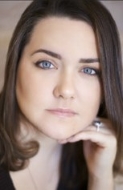


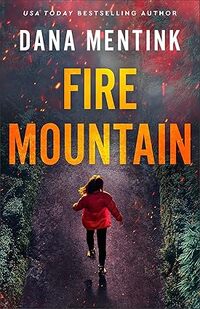


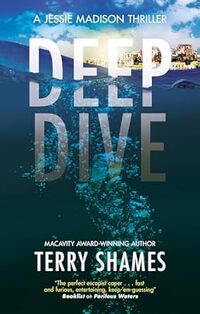

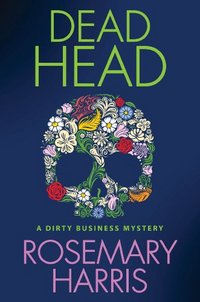
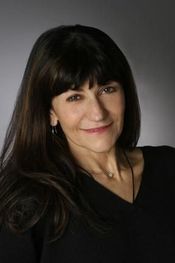
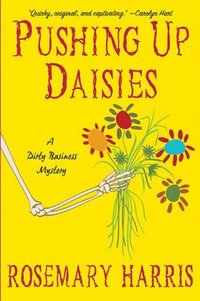
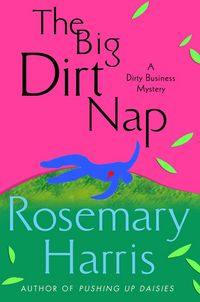
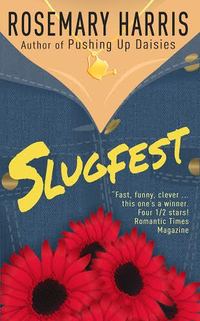

 Stepping out of your comfort zone could hold many surprises
Stepping out of your comfort zone could hold many surprises
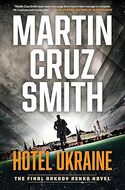

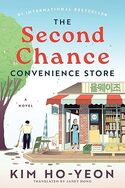
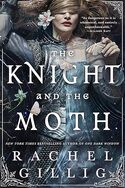
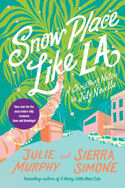
 © 2003-2025
© 2003-2025